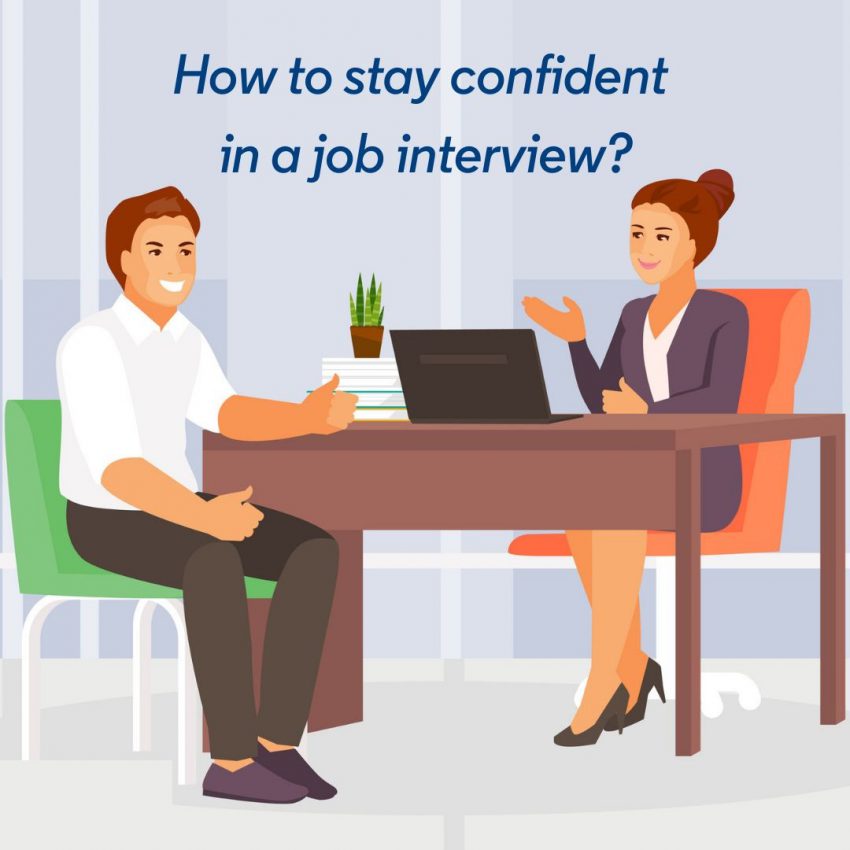Interviewing can be stressful, especially when you really want the job. Here’s how to ensure you come across confidently.
Interviews can be nerve-wracking. You’re being judged, and knowing this can chip away at your confidence. An interview really is a negotiation, says mindfulness coach Gaëtan Pellerin.
“We want to prove ourselves, we want to be accepted, and we are afraid of failing or being perceived as incompetent,” he says. “And as such, we always risk our ego getting in the way. If we feel the interview isn’t going well, it triggers an emotional response and makes it harder to be calm.”
Fortunately, there are some things you can take to boost your confidence during an interview. Before you go into the office, pick up the phone, or log onto the video platform, consider taking these five steps:
1. DO YOUR HOMEWORK
Preparation is half the battle, says Amanda Augustine, career expert for professional résumé writing firm TopResume. “The better prepared you are for your job interview, the more confident you’ll be when you’re in the room or on Zoom with your interviewer,” she says.
Augustine recommends reviewing the company’s website, checking out their reviews on sites like Glassdoor, and talking to anyone in your network who may have insights on the company and its interview process.
Part of preparation is also learning all you can about the person or people interviewing you, says Pellerin. Find out their interests and goals, then introduce these topics during the interview if there’s a natural fit.
2. BE READY WITH EXAMPLES
The other candidates likely have similar skill sets to yours. Set yourself apart by giving examples of how you’ve used those skills, says Cheryl Hyatt, cofounder of Hyatt-Fennell Executive Search.
“Applying statement like, ‘I’ve helped to increase sales,’ doesn’t quite cover it,” she says. “Did you increase them by $1 or did you increase them by $1,000? Know numbers and give examples that provide details, such as, ‘I helped to increase sales by 30%.’ Or, ‘I saved the company this much money, and this is how I did it.’ Look at the job ad and think through what you bring to that organization that somebody else wouldn’t.”
3. PRACTICE YOUR RESPONSES
Think about the interview questions that make you nervous to answer, and brainstorm the main points you wish to convey when replying to such a question, says Augustine. “Instead of memorizing a paragraph, practice delivering a response that incorporates your main talking points,” she says. “That way, you’ll be able to confidently respond to the question without sounding as though you’re reciting from a manual.”
Preparing talking points ahead of time can keep you focused on the main messages you want to convey in the interview, says Pellerin. “Write down your notes and go over them several times before the interview and have the notes in front of you during the interview so you can fall back on them when you feel your confidence start to waver,” he says.
4. IMMERSE YOURSELF IN POSITIVITY
Right before the interview, listen to uplifting music, watch motivational YouTube videos, or read inspirational quotes, says A.J. Marsden, associate professor of human services and psychology at Beacon College. “These types of primes can help boost your mood and your self-confidence,” she says.
Marsden also recommends boosting your self-confidence by remembering a time when you succeeded, such as during a previous interview, a presentation, or another event where you overcame a difficult or challenging obstacle.
“Recalling positive memories literally causes us to experience positive emotions, which makes us feel good,” she says. “Positive memories cause the brain to release dopamine, a neurotransmitter in our brain that is responsible for feeling pleasure and helping us think and plan. A big dump of dopamine right before an interview can improve mood, decrease stress and anxiety, and increase self-confidence.”
5. BURN OFF NERVOUS ENERGY
Whether you like to lift weights, ride a bike, or go for a light jog, schedule some time to sweat out your nerves before your interview, suggests Augustine.
“Exercise is a great way to burn off some nervous energy, so you don’t bound into the interview with an overabundance of enthusiasm,” she says. “As an added bonus, the extra endorphins will help boost your mood and keep you in a positive state of mind.”
While they can feel uncomfortable in the moment, nerves can be a good sign during an interview. “When you want to make a good impression, it’s natural to feel excited,” says Hyatt. “One of my mentors told me when the butterflies in your stomach are no longer fluttering, it might not be the right position for you.”
(Source : www.fastcompany.com)
